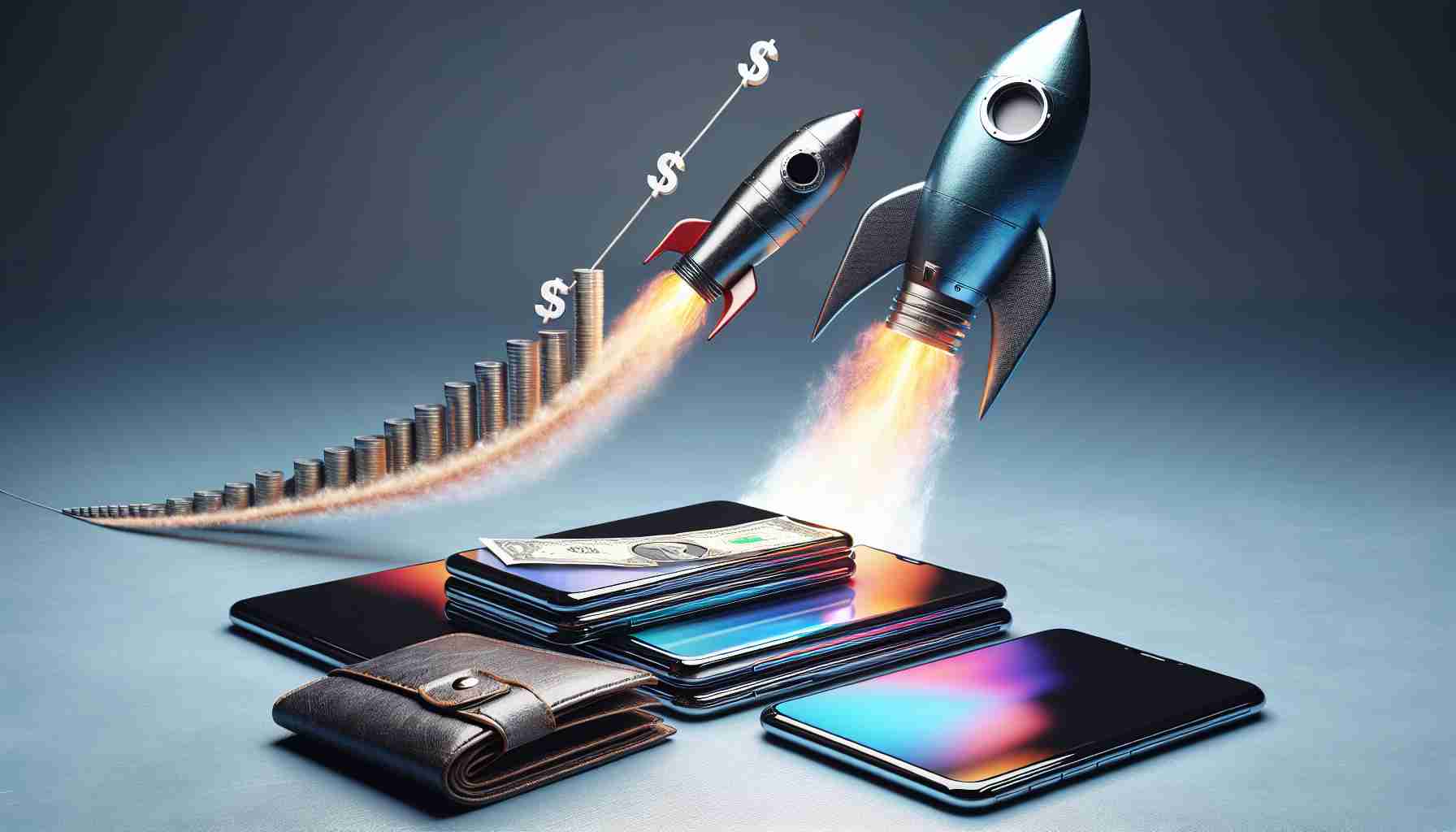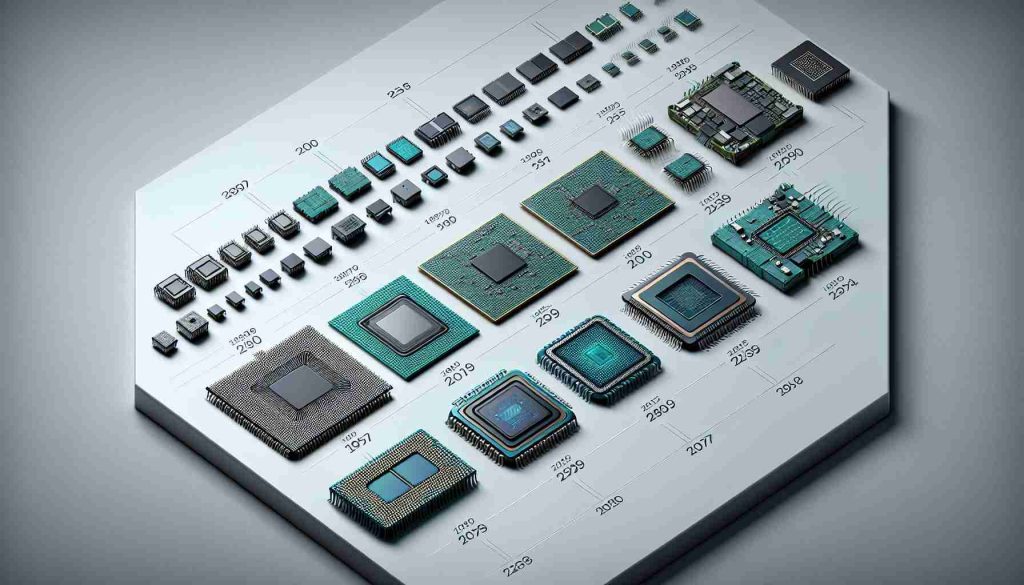As global technology advances, smartphone prices are expected to follow an upward trend. Several factors, including the increased costs of generative AI chips and the industry’s shift towards 5G, are contributing to this price surge. Counterpoint Research projects that the global average selling price of smartphones will rise by 3% in 2024, reaching $365, and then increase by another 5% in 2025.
Generative AI and Premium Features
The rising consumer interest in cutting-edge generative AI technologies is driving the push for premium smartphones. These advanced AI features demand significant improvements in CPU, GPU, and NPU capabilities, which are integral parts of the system-on-chip (SoC). In markets with longer device replacement cycles, manufacturers are leveraging generative AI to encourage consumers to upgrade to more premium models.
Luxury Smartphones on the Rise
In the first half of 2024, sales of high-end smartphones, priced at $1,000 or more, increased by 18%. This trend indicates a consumer preference for devices equipped with state-of-the-art technologies, signaling the onset of the AI smartphone era. Major smartphone makers are integrating sophisticated GenAI technologies, which sets the stage for an array of feature-rich models.
Costs Behind the Price Increase
The escalating smartphone prices are primarily due to the rising bill of materials costs. The adoption of leading-edge manufacturing processes, such as 4nm and 3nm, contributes significantly to the higher costs of new SoCs. Companies like Qualcomm and MediaTek are producing more powerful and costly chips, impacting the overall price structure of smartphones. Additionally, anticipated increases in memory prices further contribute to the price hikes. As we move deeper into the AI smartphone era, it’s expected that these trends will continue to shape the market.
The Unseen Impact of Smartphone Price Surges: How Society is Adapting
As smartphone prices continue their upward trajectory, the ripple effects extend far beyond the consumer electronics market, influencing various aspects of society and individual lives. With technological advancements paving the way for high-end devices, understanding the broader implications can shed light on this complex evolution.
Influence on Economic Disparities
The steady climb in smartphone prices, driven by innovations such as generative AI and advanced chip technology, could exacerbate economic disparities. While affluent consumers can easily afford the latest tech, those with lower incomes might face digital exclusion. This growing digital divide can lead to significant socio-economic consequences, limiting access to crucial services like online education, remote work, and healthcare.
However, there’s an optimistic side: some companies are focusing on affordability by introducing budget-friendly models with essential features, allowing wider access to technology. This balance is critical in ensuring technological advancements do not leave anyone behind.
Community and Cultural Shifts
With the surge in luxury smartphone sales, communities are witnessing cultural shifts. The perception of smartphones has transcended their traditional role as communication tools, now symbolizing status and technological prowess. This shift can influence social dynamics, prompting both positive and negative changes within communities.
For instance, while premium devices offer enhanced capabilities that foster creative expression and connectivity, they can also lead to an unhealthy emphasis on materialism. Communities must navigate these cultural shifts carefully to preserve authentic interactions and socio-cultural values.
Environmental Concerns and Innovations
As smartphone manufacturing becomes increasingly sophisticated, significant environmental concerns arise. The production of advanced chips and devices involves resource-intensive processes that contribute substantially to electronic waste and carbon emissions.
On the upside, this challenge has spurred innovation in sustainable practices. Manufacturers are investing in recycling programs and sustainable materials, aiming to reduce their environmental footprint. As consumers demand eco-friendly options, the industry is gradually shifting towards greener solutions.
Questions and Controversies
One major question arises: Are ultra-premium features worth the economic and environmental cost? The debate centers around whether technological innovation should prioritize top-tier advancements or focus on practical, sustainable solutions. Could the industry’s focus on luxury models intensify income inequality? What alternative approaches can balance tech advancements with broader societal needs?
While definitive answers remain elusive, ongoing discourse continues to shape the industry’s trajectory.
Advantages and Disadvantages of Rising Smartphone Prices
Advantages:
– Enhanced Features: Premium devices offer cutting-edge AI and computational power, improving user experiences.
– Fostering Innovation: Price increases fund research and development, driving technological breakthroughs.
– Eco-Incentives: Higher prices may incentivize consumers to use devices longer, reducing electronic waste.
Disadvantages:
– Economic Barriers: Higher costs could exclude low-income consumers from digital advancements.
– Cultural Impact: The focus on luxury models may fuel materialism and social divides.
– Environmental Costs: Manufacturing processes contribute to environmental degradation unless managed sustainably.
For further insights into how technology affects global economies and societies, visit World Bank and World Economic Forum.
As smartphone technology evolves, its impact on society will continue to unfold, presenting both challenges and opportunities. By addressing these critical issues thoughtfully, we can harness technological progress to benefit all of society.
























